
Research
Forging technology from science
R&D projects
In the last 25 years, our research group participated in more than 30 EU cooperative research projects (FP4-Horizon) and more than 25 direct industry collaborations. In our R&D projects, we develop new, innovative software-based solutions that help engineers create better systems.

AWS
Graph Solver as a ServiceTogether with McGill University our research group won a prestigious Amazon Research Awards with a proposal entitled Graph Solver as a Service. We redesigned and enhanced our graph generation algorithm and model store to make it possible to scale for a cloud-based environment.

Previous projects
From FP4 to H2020EU collaborative projects (EEMCN, FUTEG, HIDE, DECOS, RESIST, Sensoria, Deserec, Diana, Hidenets, SafeDMI, Amber, Genesys, Mogentes, SecureChange, E-freight, R3-COP, CECRIS, Concerto, MONDO, R5-COP...) and national research grants (MTA Lendület, ERC_HU, OTKA...)

EDGE-Skills
European Dataspace for Growth and Education - SkillsThe EDGE-Skills project's objectives are to develop and deploy innovative cloud to edge services for the educations and skills data space, and make accessible the data space to public and private organisations.
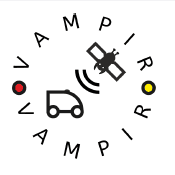
VAMPIR
Verifiable AI/ML techniques for PNT applicationsThe ESA-funded VAMPIR project develops a verification engine for AI-enhanced Positioning, Navigation, and Timing (PNT) application using graph reasoning. The verification engine is demonstrated on improving the performance of advanced driver assistance systems.

OpenSCALING
Open Standards for SCALable virtual engineerINGThe OpenSCALING project aims to enchance open standards and established modelling and simulation tools to better support large-scale systems and distributed controllers optimized to minimize energy consumption and greenhouse gas emissions.

DOSS
Secure-By-Design IoT Operation With Supply Chain ControlThe DOSS project aims to create a secure-by-design methodology for improving the security and reliability of IoT operations by introducing an integrated monitoring and validation framework to IoT Supply Chains. FTSRG works on an impact assessment solution for generating security test targets from the aspect of system dependability.
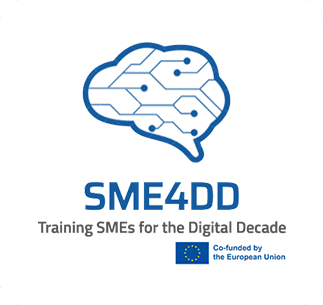
SME4DD
Training SMEs for the Digital DecadeThe SME4DD project will deliver short-term training programmes in three strategic digital technologies to upskill the workforce of Europe: artificial intelligence, blockchain and cybersecurity. Our research group is responsible for the courses about designing, developing and deploying blockchain technologies.

Competence Center
Safety Science and Technology Competence CenterBME together with four large enterprises established a Safety Science and Technology Competence Center. Our research group worked with thyssenkrupp to design new methods and tools to make safety critical system development more efficient using model-based engineering and new safety analysis algorithms.

ADVANCE
Addressing V&V Challenges in Future CPSThe “Addressing Verification and Validation Challenges in Future Cyber-Physical Systems” (ADVANCE) H2020 RISE research project has started this year with the participation of researchers from our research group working on the challenges of future cyber-physical systems. The project runs for 4 years, and its total budget is € 657 800.

AWS
Graph Solver as a ServiceTogether with McGill University our research group won a prestigious Amazon Research Awards with a proposal entitled Graph Solver as a Service. We redesigned and enhanced our graph generation algorithm and model store to make it possible to scale for a cloud-based environment.

Previous projects
From FP4 to H2020EU collaborative projects (EEMCN, FUTEG, HIDE, DECOS, RESIST, Sensoria, Deserec, Diana, Hidenets, SafeDMI, Amber, Genesys, Mogentes, SecureChange, E-freight, R3-COP, CECRIS, Concerto, MONDO, R5-COP...) and national research grants (MTA Lendület, ERC_HU, OTKA...)

EDGE-Skills
European Dataspace for Growth and Education - SkillsThe EDGE-Skills project's objectives are to develop and deploy innovative cloud to edge services for the educations and skills data space, and make accessible the data space to public and private organisations.

VAMPIR
Verifiable AI/ML techniques for PNT applicationsThe ESA-funded VAMPIR project develops a verification engine for AI-enhanced Positioning, Navigation, and Timing (PNT) application using graph reasoning. The verification engine is demonstrated on improving the performance of advanced driver assistance systems.

OpenSCALING
Open Standards for SCALable virtual engineerINGThe OpenSCALING project aims to enchance open standards and established modelling and simulation tools to better support large-scale systems and distributed controllers optimized to minimize energy consumption and greenhouse gas emissions.

DOSS
Secure-By-Design IoT Operation With Supply Chain ControlThe DOSS project aims to create a secure-by-design methodology for improving the security and reliability of IoT operations by introducing an integrated monitoring and validation framework to IoT Supply Chains. FTSRG works on an impact assessment solution for generating security test targets from the aspect of system dependability.

SME4DD
Training SMEs for the Digital DecadeThe SME4DD project will deliver short-term training programmes in three strategic digital technologies to upskill the workforce of Europe: artificial intelligence, blockchain and cybersecurity. Our research group is responsible for the courses about designing, developing and deploying blockchain technologies.

Competence Center
Safety Science and Technology Competence CenterBME together with four large enterprises established a Safety Science and Technology Competence Center. Our research group worked with thyssenkrupp to design new methods and tools to make safety critical system development more efficient using model-based engineering and new safety analysis algorithms.

ADVANCE
Addressing V&V Challenges in Future CPSThe “Addressing Verification and Validation Challenges in Future Cyber-Physical Systems” (ADVANCE) H2020 RISE research project has started this year with the participation of researchers from our research group working on the challenges of future cyber-physical systems. The project runs for 4 years, and its total budget is € 657 800.

AWS
Graph Solver as a ServiceTogether with McGill University our research group won a prestigious Amazon Research Awards with a proposal entitled Graph Solver as a Service. We redesigned and enhanced our graph generation algorithm and model store to make it possible to scale for a cloud-based environment.

Previous projects
From FP4 to H2020EU collaborative projects (EEMCN, FUTEG, HIDE, DECOS, RESIST, Sensoria, Deserec, Diana, Hidenets, SafeDMI, Amber, Genesys, Mogentes, SecureChange, E-freight, R3-COP, CECRIS, Concerto, MONDO, R5-COP...) and national research grants (MTA Lendület, ERC_HU, OTKA...)
Publications
Full publication list |Datasets |Slides
Our research group regularly publishes papers in the leading venues of software engineering (TSE, IST, STTT), model-driven engineering (MODELS, SoSyM), formal verification (TACAS, JAR) and software testing (ICST, STVR).
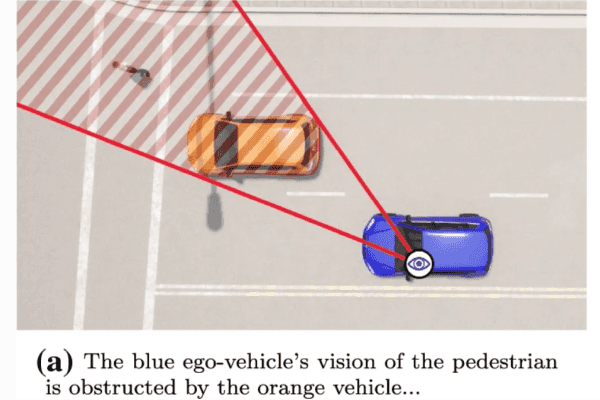
Softw Syst Model 2022
Automated generation of consistent models using qualitative abstractions
We designed new algorithms to combine various solvers for synthesizing test scenarios represented as graph models.
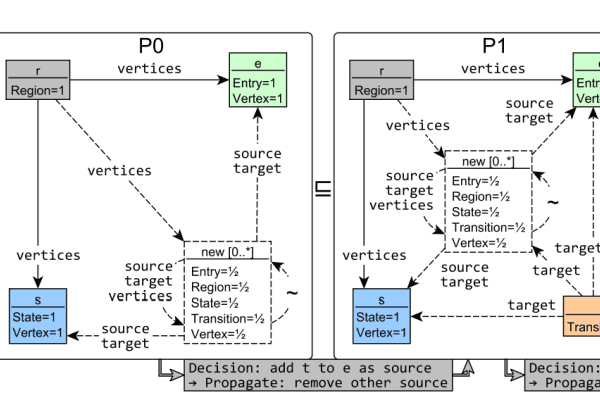
IEEE T Software Eng 2022
Automated Generation of Consistent Graph Models with Multiplicity Reasoning
We designed a new method to solve optimization problems during graph generations according to various object functions.
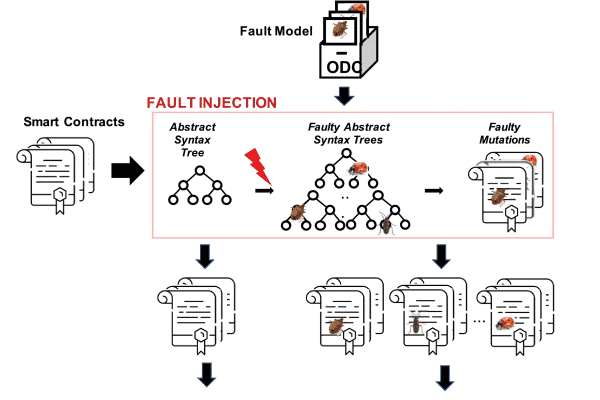
IEEE Access 2020
Using Fault Injection to Assess Blockchain Systems in Presence of Faulty Smart Contracts
In a collaboration with University of Coimbra, we recommended a method to assess the dependability of blockchain systems.
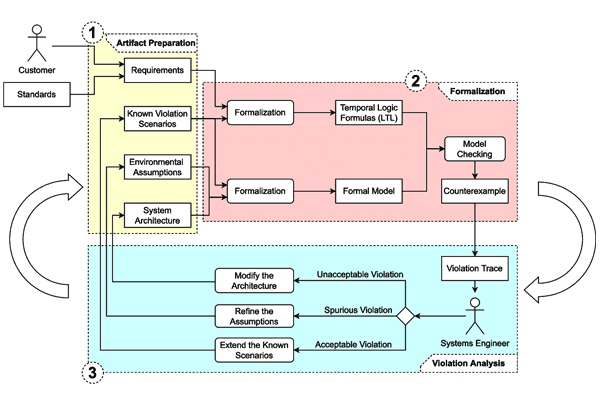
Empirical Software Eng 2026
Aiding the design of critical software systems by iterative exploration of distinct requirement violation scenarios
We designed a process for systematic exploration of requirement violation scenarios in fault-tolerant system designs, and applied it to an automotive case-study.
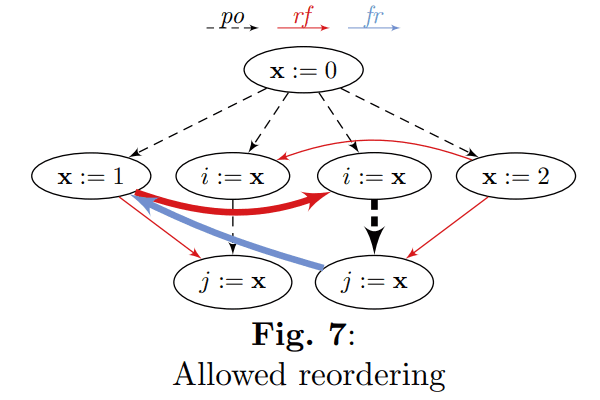
Softw Syst Model 2025
Networcat: applying analysis techniques of shared memory software on message-passing distributed systems
We presented a novel way of modeling communication in distributed systems by using a language for shared-memory concurrency in software, thus bridging the two domains.
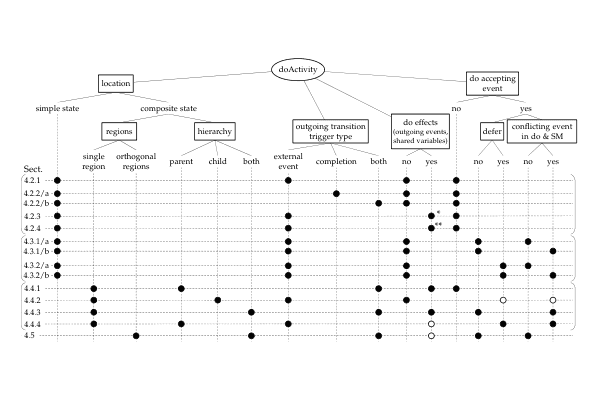
IEEE T Software Eng 2024
To Do or Not to Do: Semantics and Patterns for Do Activities in UML PSSM State Machines
We analysed the semantic details of doActivities in UML state machines and proposed practical patterns to highlight potential issues in models.
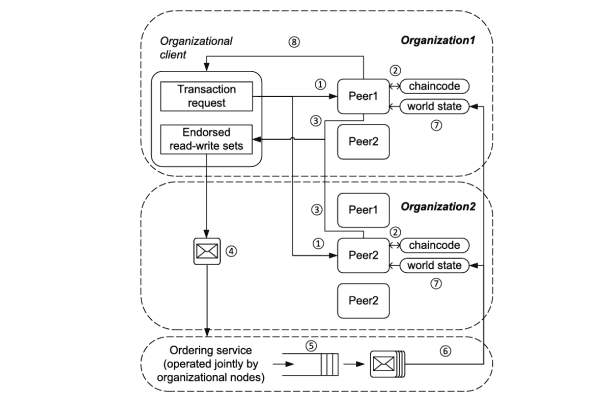
IEEE Access 2024
Transaction Conflict Control in Hyperledger Fabric - A Taxonomy, Gaps, and Design for Conflict Prevention
The paper highlights how model-based methods can be used in the performance optimization of cross-organizational blockchains.
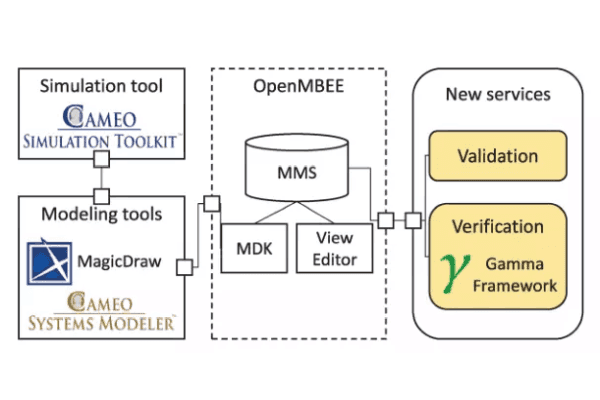
Systems Engineering 2023
Pragmatic verification and validation of industrial executable SysML models
Together with IncQuery Labs and NASA JPL we developed a workflow for applying formal verification to industrial executable SysML models.
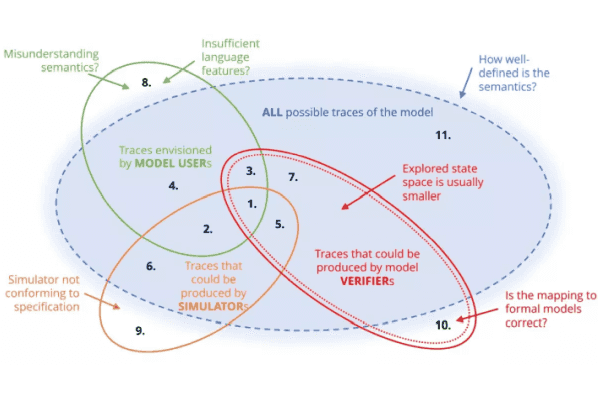
Software Quality J 2023
Assessing the specification of modelling language semantics - a study on UML PSSM
We recommended methods and processes for assessing the semantics of modeling languages for model users, tool and language designers.

Softw Syst Model 2022
Automated generation of consistent models using qualitative abstractions
We designed new algorithms to combine various solvers for synthesizing test scenarios represented as graph models.

IEEE T Software Eng 2022
Automated Generation of Consistent Graph Models with Multiplicity Reasoning
We designed a new method to solve optimization problems during graph generations according to various object functions.

IEEE Access 2020
Using Fault Injection to Assess Blockchain Systems in Presence of Faulty Smart Contracts
In a collaboration with University of Coimbra, we recommended a method to assess the dependability of blockchain systems.

Empirical Software Eng 2026
Aiding the design of critical software systems by iterative exploration of distinct requirement violation scenarios
We designed a process for systematic exploration of requirement violation scenarios in fault-tolerant system designs, and applied it to an automotive case-study.

Softw Syst Model 2025
Networcat: applying analysis techniques of shared memory software on message-passing distributed systems
We presented a novel way of modeling communication in distributed systems by using a language for shared-memory concurrency in software, thus bridging the two domains.

IEEE T Software Eng 2024
To Do or Not to Do: Semantics and Patterns for Do Activities in UML PSSM State Machines
We analysed the semantic details of doActivities in UML state machines and proposed practical patterns to highlight potential issues in models.

IEEE Access 2024
Transaction Conflict Control in Hyperledger Fabric - A Taxonomy, Gaps, and Design for Conflict Prevention
The paper highlights how model-based methods can be used in the performance optimization of cross-organizational blockchains.

Systems Engineering 2023
Pragmatic verification and validation of industrial executable SysML models
Together with IncQuery Labs and NASA JPL we developed a workflow for applying formal verification to industrial executable SysML models.

Software Quality J 2023
Assessing the specification of modelling language semantics - a study on UML PSSM
We recommended methods and processes for assessing the semantics of modeling languages for model users, tool and language designers.

Softw Syst Model 2022
Automated generation of consistent models using qualitative abstractions
We designed new algorithms to combine various solvers for synthesizing test scenarios represented as graph models.

IEEE T Software Eng 2022
Automated Generation of Consistent Graph Models with Multiplicity Reasoning
We designed a new method to solve optimization problems during graph generations according to various object functions.

IEEE Access 2020
Using Fault Injection to Assess Blockchain Systems in Presence of Faulty Smart Contracts
In a collaboration with University of Coimbra, we recommended a method to assess the dependability of blockchain systems.

Tools

Gamma statechart composition framework
The Gamma modeling toolset helps to design and formally verify component-based reactive systems and can generate implementations.

Theta model checking framework
The Theta model checking framework is a collection of modern, abstraction refinement-based algorithms, which can be tailored to the give problem due to their configurability.
Refinery graph solver
Refinery is an efficient graph solver for generating diverse, well-formed domain-specific models using partial modeling techniques.

VIATRA
Eclipse VIATRA is a model query and transformation framework, focusing on high-performance and incremental synchronization.
Events and awards
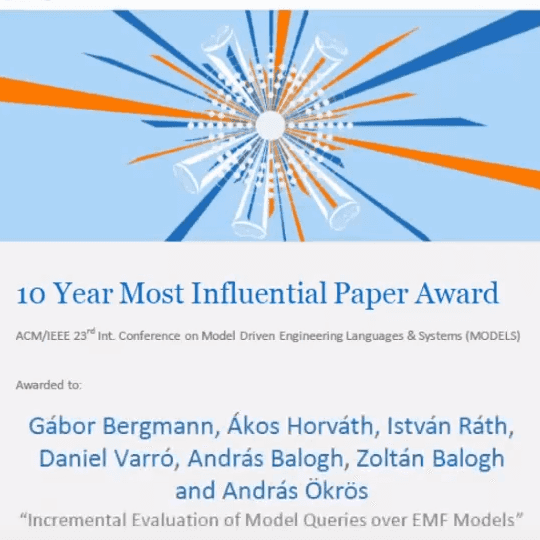
MODELS Most influential paper
10-year most influential paper at MODELS 2020Our current and former colleagues received the „10-Year Most Influential Paper” award at MODELS, the leading conference on model-based software and systems engineering, for their paper „Incremental Evaluation of Model Queries over EMF Models” published at MODELS 2010.
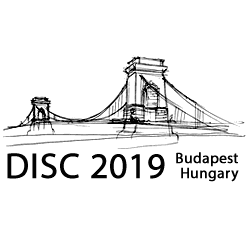
DISC 2019
33rd Int. Symposium on Distributed ComputingOur research group organized the International Symposium on Distributed Computing (DISC) conference held in Budapest between the 14th and 18th of October 2019. DISC is a prestigious international forum on the theory, design, analysis, and application of distributed systems and networks.

OTDT Master Teacher Gold Medal
Awarding outstanding talent careSeveral members of our research group received the Master Teacher Gold Medal, which is awarded by the OTDT to recognize outstanding scientific talent care work: András Pataricza (1997), Dániel Varró (2009), István Majzik (2011), András Vörös (2021), Vince Molnár (2025).

Hungarian Young Academy
Zoltan Micskei was elected a member of the HYAThe Hungarian Young Academy aims to support junior scientists and to get their voices heard by decision-makers. The Academy elects 12 members every year under the age of 40 based on scientific excellence and the activity planned.

Youth Award of the Hungarian Academy
Academy Youth Award for Oszkár SemeráthOszkár Semeráth received the Academy Youth Award from the Hungarian Academy of Sciences (MTA) in 2021 for his work on graph-based reasoning and verification. Every year 22 young researchers receive the award from all fields.
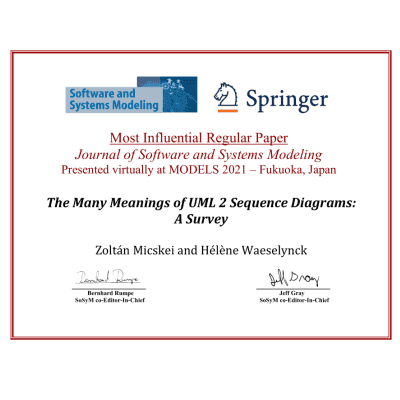
SoSyM Most influential paper
10-year most influential paper in SoSyM journalZoltán Micskei and Hélène Waeselynck received the „10-Year Most Influential Paper” award for their paper „The many meanings of UML 2 Sequence Diagrams: a survey”, published ten years ago in SoSyM, the leading journal on model-based software and systems engineering.
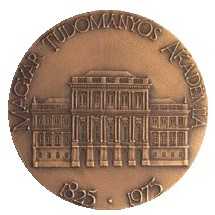
Award of the Hungarian Academy
MTA Award for András PatariczaThe award cited the outstanding work on the theoretical foundations, design and development of critical IT infrastructure and cyber-physical systems; founding an internationally recognized group in the fault-tolerant community; and the achievements in talent care.

MODELS Most influential paper
10-year most influential paper at MODELS 2020Our current and former colleagues received the „10-Year Most Influential Paper” award at MODELS, the leading conference on model-based software and systems engineering, for their paper „Incremental Evaluation of Model Queries over EMF Models” published at MODELS 2010.

DISC 2019
33rd Int. Symposium on Distributed ComputingOur research group organized the International Symposium on Distributed Computing (DISC) conference held in Budapest between the 14th and 18th of October 2019. DISC is a prestigious international forum on the theory, design, analysis, and application of distributed systems and networks.

OTDT Master Teacher Gold Medal
Awarding outstanding talent careSeveral members of our research group received the Master Teacher Gold Medal, which is awarded by the OTDT to recognize outstanding scientific talent care work: András Pataricza (1997), Dániel Varró (2009), István Majzik (2011), András Vörös (2021), Vince Molnár (2025).

Hungarian Young Academy
Zoltan Micskei was elected a member of the HYAThe Hungarian Young Academy aims to support junior scientists and to get their voices heard by decision-makers. The Academy elects 12 members every year under the age of 40 based on scientific excellence and the activity planned.

Youth Award of the Hungarian Academy
Academy Youth Award for Oszkár SemeráthOszkár Semeráth received the Academy Youth Award from the Hungarian Academy of Sciences (MTA) in 2021 for his work on graph-based reasoning and verification. Every year 22 young researchers receive the award from all fields.

SoSyM Most influential paper
10-year most influential paper in SoSyM journalZoltán Micskei and Hélène Waeselynck received the „10-Year Most Influential Paper” award for their paper „The many meanings of UML 2 Sequence Diagrams: a survey”, published ten years ago in SoSyM, the leading journal on model-based software and systems engineering.

Award of the Hungarian Academy
MTA Award for András PatariczaThe award cited the outstanding work on the theoretical foundations, design and development of critical IT infrastructure and cyber-physical systems; founding an internationally recognized group in the fault-tolerant community; and the achievements in talent care.

MODELS Most influential paper
10-year most influential paper at MODELS 2020Our current and former colleagues received the „10-Year Most Influential Paper” award at MODELS, the leading conference on model-based software and systems engineering, for their paper „Incremental Evaluation of Model Queries over EMF Models” published at MODELS 2010.

DISC 2019
33rd Int. Symposium on Distributed ComputingOur research group organized the International Symposium on Distributed Computing (DISC) conference held in Budapest between the 14th and 18th of October 2019. DISC is a prestigious international forum on the theory, design, analysis, and application of distributed systems and networks.






